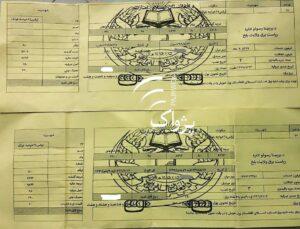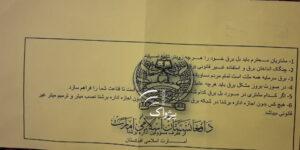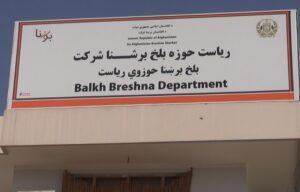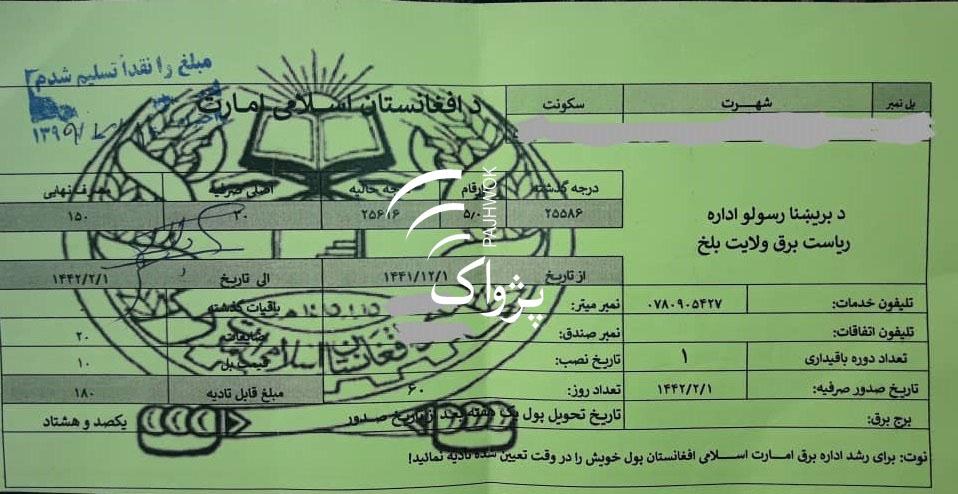MAZAR-I-SHARIF (Pajhwok): Taliban militants collect from 20 to 30 million afghanis from electricity consumers in four districts of northern Balkh province, Pajhwok Afghan News has learnt.
The Taliban collect power bills from thousands of families in Chahar Bulak, Balkh, Chamtal and Nahr Shahi districts of Balkh province.
Pajhwok findings show the Taliban collect electricity bills from over 30 villages in the mentioned disitricts after every two months.
Mohammad Nabi, not a real name, a tribal elder from Chahar Bulak district, told Pajhwok that electricity bills were collected by Taliban in the district since last two years.
The Taliban print bills under the title of Taliban Emirates and collect electricity bills based on meter usage once in two months, he said.
Nabi also showed the bill of electricity consumption he paid to the Taliban.
“When the government was in control in our area, the bill was collected by the power utility officers, some people defaulted on bills for months, but now the Taliban collect the bills and people pay them without any delays,” he added.
“If anyone does not pay the bills within the defined time, the Taliban cut their electricity”, he added.

Gul Rahman Hamdard, a lawmaker from Balkh province, said that the Taliban collected millions of afghanis in power bills in the province every year.
He said the government had no information about the number of families paying their power bills to the Taliban in Balkh.
The Taliban will always collect these bills until the security situation is improved in unstable areas, he added.

Balkh power utility acknowledged Taliban’s collection of power bills in a number of districts of the province.
Balkh DABS Director Eng. HameedullahHameed said the Taliban collected an estimated four to five million afs every two months in electricity bills in Balkh.
He said despite the fact that electricity in Balkh was imported, still DABS offered general electricity bills from its own revenue.
He said “electricity in Balkh is imported from Turkmenistan and Uzbekistan. The contract is renewed every year on the basis of consumers who pay the bills but DABS has to pay them from its revenue of areas where Taliban collect the bills and pocket the money,” he said.
According to Hameed, due to insecurity in some Balkh areas, DABS officials could not distribute bills to people.

Balkh Police Chief Syed MerajuddinSadaat said security forces had launched operations in Chamtal and Chaharboluk districts to eradicate security challenges and ensure peace.
He said around 200 fresh forces would be deployed to Balkh and Chaharboluk districts which would help stop the Taliban from collecting electricity bills.
Economy Affairs Director and University Teacher UstadRatib said money collected by the Taliban as electricity bills was bigger than what the government was claiming.
He said the Taliban collected money manually and it enhanced chances for corruption.
“The government acknowledges that an estimated 20 to 30 million afs annually goes to the Taliban. There are some areas which are under no side control and people use electricity there freely,” he added.
He believed with passage of time, this issue would become a huge problem, adding that the government had no option but pay the countries from whom the electricity is imported.
According to Mohammadi, when Taliban collect electricity bills, then it is clear that the government should shoulder the burden and especially the DABS.
The Taliban have not confirmed or rejected the issue. Taliban Spokesperson ZabihullahMujahid said he would respond after he collected information from areas where it was claimed that the Taliban collected electricity bills.
But after few days, Mujahid again said he did not collect information.
It is worth mentioning that besides Balkh province, the residents of other areas had told Pajhwok Afghan News that the Taliban collect their electricity bills.
This report has been produced by Pajhwok and financially supported by UNDP and Denmark.
mds/nh/ma







GET IN TOUCH
NEWSLETTER
SUGGEST A STORY
PAJHWOK MOBILE APP